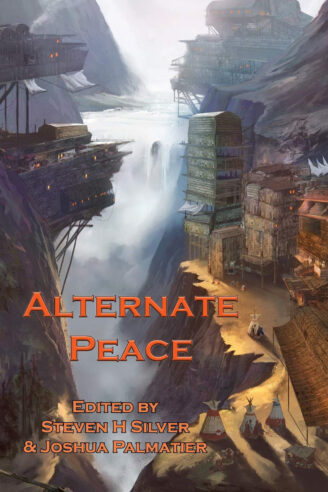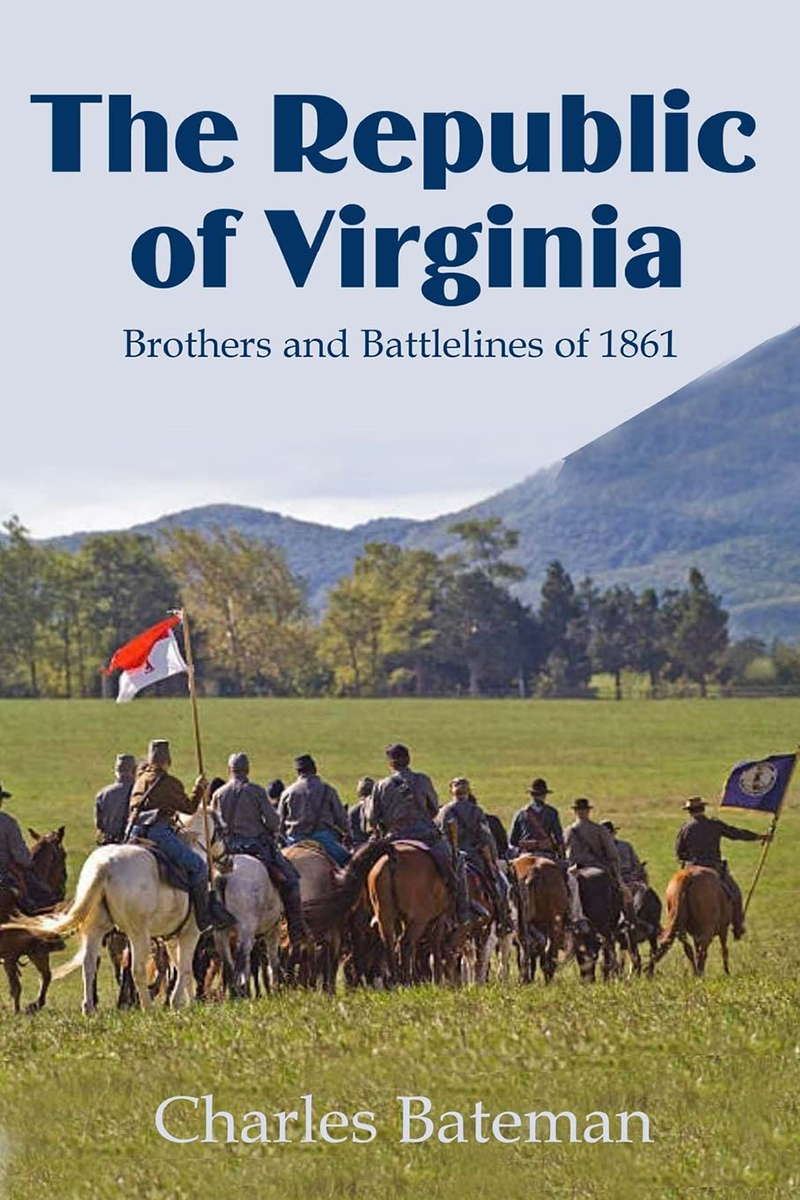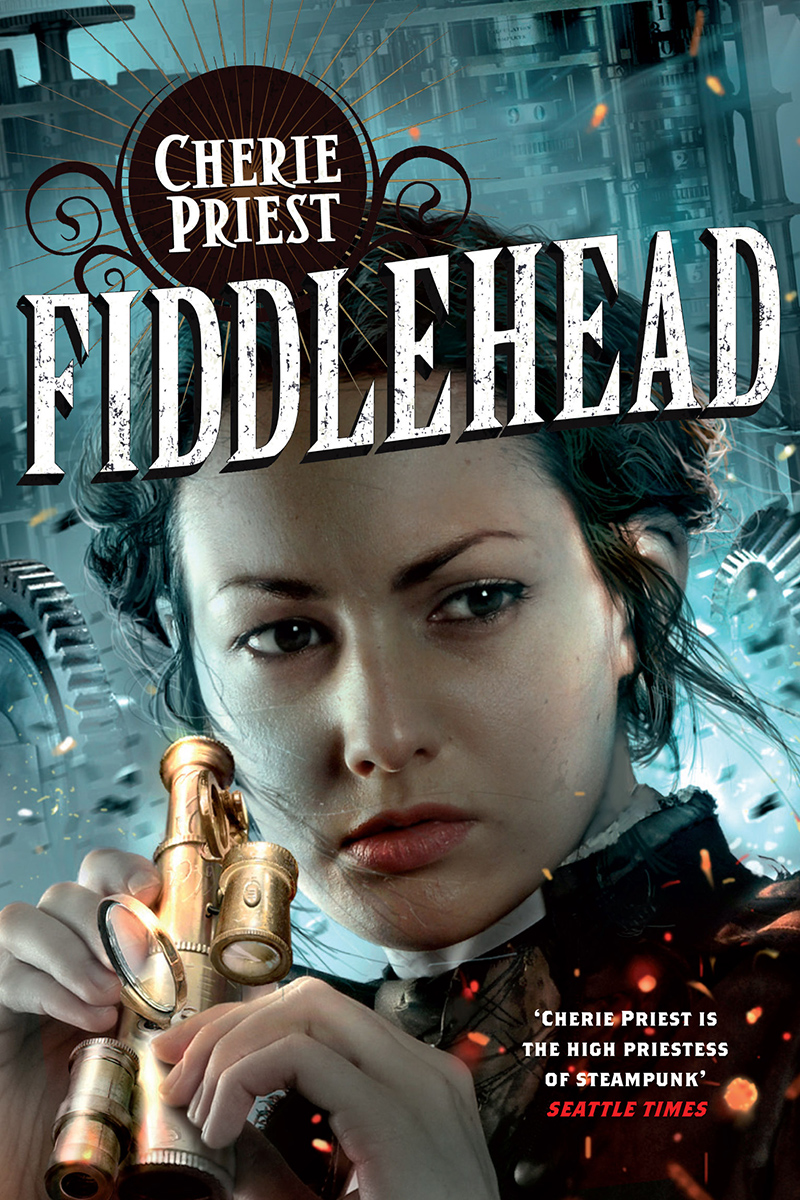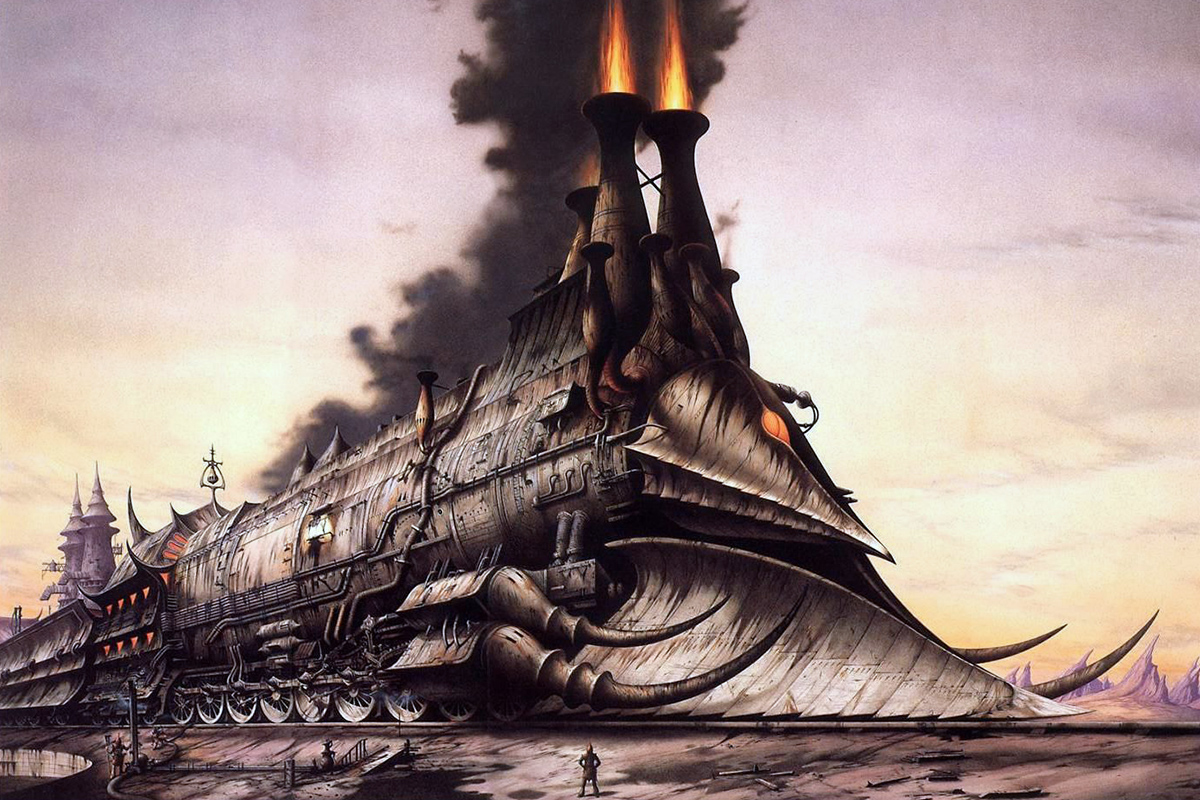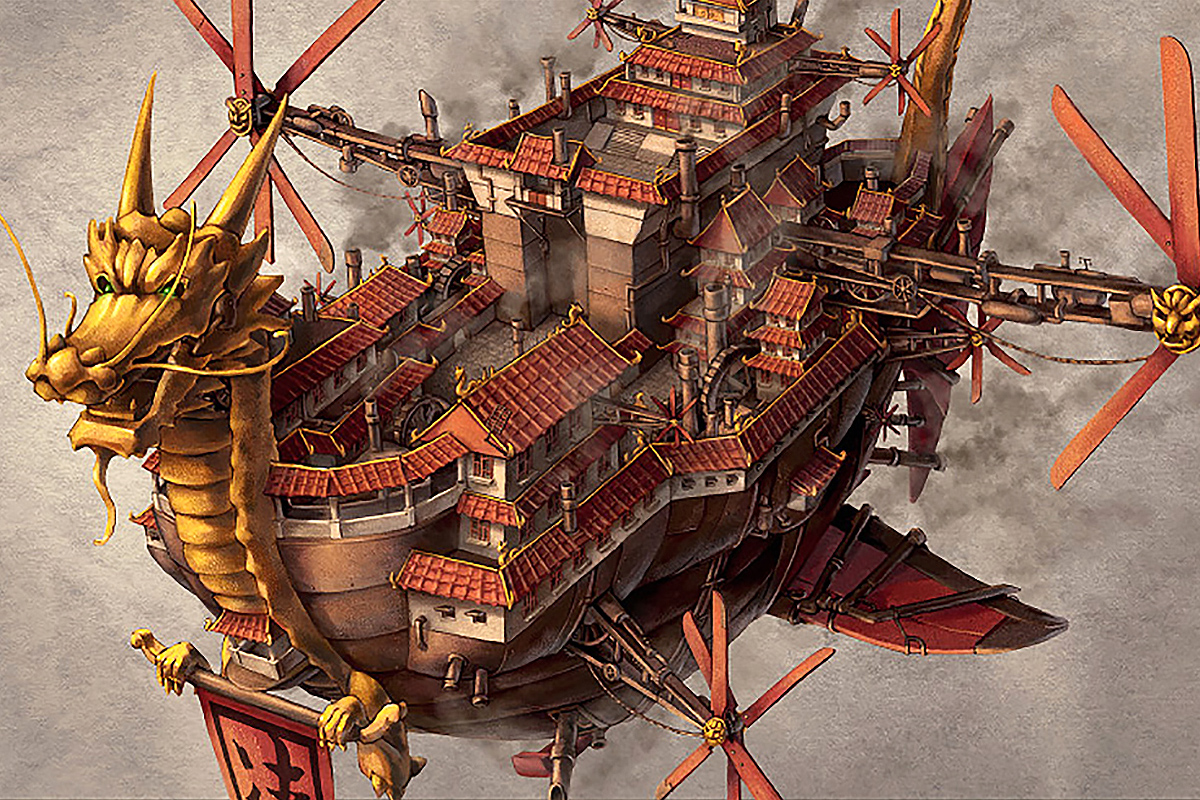It’s not exactly insightful to say that historical fiction, alternate history included, is obsessed with war, and there are good reasons for that. War is both common, being able to live through a lifetime without ever directly experiencing combat is a privilege that most of humanity didn’t have, and incredibly dramatic, nations and ideals can fall and rise based on a single gunshot.
But every genre needs variety. If all alternate-history stories are war stories, then the genre can appear, as Arturo Serrano put it, as of only interest to war gamers. All about tanks and bullets with little interest in the cultures and societies that wars defended, formed and destroyed.
This article, while originally written before our panel discussion on “Guns or Butter,” will go out sandwiched on either side by that discussion which was about the question, “What has alternate history lost by focusing on military fiction instead?”
A 2019 anthology edited by Steven H. Silver, recently interviewed on the Sea Lion Press blog, is a deliberate anecdote to the military focus and so might answer that question. So I thought it was worth revisiting it. The anthology is called Alternate Peace and is an explicit alternate history about civic peaceful society. Adam Selby-Martin enthusiastically reviewed this anthology for us three years ago and his glowing review proved that you don’t need war to be interesting.
Well, you don’t need war directly, anyway. The thing is, having read and enjoyed the book myself, the specter of war still looms large over a lot of these stories, which are often about politics and science and espionage and so deal with the consequences of previous wars and the fears of new ones. The discovery of nuclear energy by a Syrian scientist operating within an enduring Roman Empire, in a story by Michael Robertson, becomes a story about who can be trusted with the potential for warmaking this invention creates, while Kat Otis’ clever story about dynastic politics in sixteenth-century France has as its stakes the fear of a new round of war breaking out over the possible poisoning of the French king.
Steven Leigh’s take on the Easter Rising is a beautiful homage to the power of peaceful protest but its setting in 1916 and its theme is of trying to avoid the our-timeline violence of Irish independence in a world already horrified by the brutality of World War I.
Other stories are likewise about avoiding the Franco-Prussian War and World War I, respectively, the latter featuring a shellshocked soldier who travels in time and dimension and thus avoids the war entirely. These might not be military stories, but they are still stories about wars and say a lot about conflict without ever portraying it directly, in the way avoiding that violence motivates the characters, particularly those who have experienced it elsewhere.
If the argument is that a focus on war blinds writers from the drama they can get elsewhere, it is interesting the extent to which war still provides the stakes and terms of the conflict in so much of this anthology.
C.W. Briar’s vivid London set horror story about the oppression of the peasant underclass leading to a violent revolution, while gripping, is only not a war story by technicality. The violence is mostly offscreen, but the ever-present danger and possibility of death driving emotional bonds between the main characters is a classic war story beat. It’s just here the enemies are the upper class and not another country.
Moreover, the two most used war-based what ifs still get their time here. Dale Cozort’s atmospheric tale is set in an isolationist peacetime United States of America, reeling from being left behind by the scientific achievements of the brutal regimes of Eurasia, but it’s still a Nazi-victory story, with the horrors of that scenario left off-page but still providing the stakes.
Likewise, Kristine Katherine Rusch’s thought-provoking Civil War story might be based around a different reconstruction rather than a different Gettysburg, but it’s still a Confederate versus Union tale, and memories and knowledge of that war provide the story’s tension.
What you find here is less of a clean break from the standard alternate-history stories and more a different angle on those tales, which shift the viewpoint rather than the topic. They’re fun certainly, but don’t expect anything too original. The world outside the USA and UK gets little attention, for one.
There are stories which are purely peacetime ones, of course. And two in particular stick out. One is Elektra Hammond’s short story of a marriage unravelling as shown through letters and newspaper excerpts. The tension here is not about the loss of life or peace as so many of the others are, but the loss of the happiness of a relationship. And Hammond shows that the stakes there can feel as high as any war and just as effecting to the reader, because we’ve come to care about the marriage. The punchlines, the suddenly formal letter free of the florid “with loves” of the earlier ones, and the newspaper article suddenly not mentioning the Husband alongside the kids, are brutal. It’s an effective, well-written story.
Given that the two characters within that marriage are a real married couple, there is however a question of taste. The husband is still alive and is, in our timeline, a widower rather than a divorcee. An alternate-history story which argues her survival would have come at the cost of their continuing marriage is good historical speculation, but whenever historical fiction deals with the still living, there is always an uncomfortable voyeuristic edge to it and this story certainly skirts that line, and possibly crosses it.
It is perhaps a sign of our society that writing a story in which that husband is sent off to war and dies would feel, to me at least, in better taste than this one when objectively it perhaps shouldn’t. But that uncomfortableness of writing fiction about the inner lives and romantic relations of living people who might theoretically read it is perhaps why alternate-history fiction focused on the modern day tends to prefer the bigger picture.
In terms of emotional resonance, though, it’s a highlight. The only story that matches it, within this anthology is Mike Barretta’s “New Moon, Dark Skies,” about a black astronaut struggling with American racism, which like Adam I viewed as a standout piece and an effective way of pitching the stakes of a story about world-shattering events, both the Space Race and the Civil Rights movement, at a very personal level. It’s a fantastic short and the entire anthology is worth buying purely for that.
But, while that story is a highlight, the anthology is enjoyable throughout. I agree entirely with the praise Adam threw at it, every story here is worth reading. What it isn’t is a clean break from the genre’s normal territory. The thing that really strikes me about this anthology is that if it hadn’t advertised itself as being devoted entirely to peaceful alternate history, I’m not sure I would have actually noticed.
I have recently been working on an anthology about Ireland and in terms of topics, these stories aren’t that different to the ones in that. Stories about peace negotiations, about the Space Race, about politics, about revolutions and about espionage are all relatively within the mainstream. This isn’t suddenly telling stories about the creation of the washing machine or the sexual revolution.
There is no story here that I would be surprised to see in a generic alternate-history anthology and as such little real novelty to an experienced reader.
Harry Turtledove’s story in particular would probably work a lot better for a complete newcomer to the genre than it did on me. It’s set from the perspective of a Democratic voter in the 2016 presidential election, with the two candidates described in such a way that, if you had somehow missed the theme of this book, you might think it was Clinton and Trump, but of course the names are subtly not mentioned and actually the candidates are different people. If this is the first time you encounter that trick it probably works better than if you have read fifty of these on alternate-history forums before.
Something clever still could have been said with this if the same policies as our timeline were espoused by different personalities and so got different reactions, but policies aren’t mentioned, the curse of all political alternate history. The point is simply the trick, and such tricks are less effective every new time you encounter them.
This really is just a good alternate-history anthology covering the old alternate-history standards rather than anything groundbreaking. That’s fine in of itself, in terms of the quality of the anthology, it seems churlish to demand originality as well as quality.
But if the argument is that this is what the genre would get if it focused less on war, as our panel is discussing, than I am not entirely sold on it being a significant difference. Does the way the twist in Turtledove’s story is about a different political candidate rather than a different war means it says anything new? Not really, it’s a twist story and the topic is largely irrelevant to that twist. And Mike Barretta has long since proved himself capable of writing equally emotional war stories.
It’s difficult to avoid the idea that the same writers are going to write similar stories regardless of the topic. A military fiction writer writing for an anthology which asks for stories about peace is not going to turn into Jane Austen or Kim Stanley Robinson, they’re just going to write about espionage or the Space Race or a revolution and still explore the same themes of bonds formed by danger, bravery and life and death situations. And judging by this anthology, a lot of them are still going to talk about wars. The impression I get from the extent that which the threat of a war is the tension which the stories here are built in is that these writers’ view peace not as a period in which societies change and develop in interesting ways in itself, but merely as one which is absence of the changes brought about by war.
This story was originally published by Sea Lion Press, the world’s first publishing house dedicated to alternate history.

